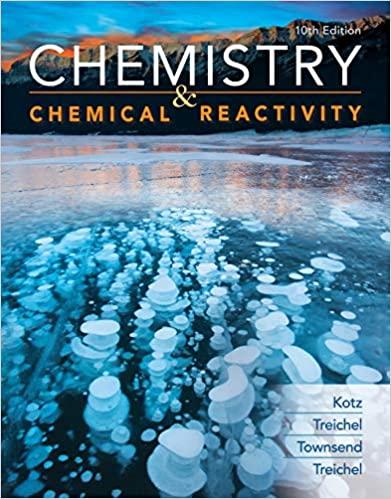You want to determine the density of a compound but have only a tiny crystal, and it
Question:
You want to determine the density of a compound but have only a tiny crystal, and it would be difficult to measure mass and volume accurately. There is another way to determine density, however, called the flotation method. If you placed the crystal in a liquid whose density is precisely that of the substance, it would be suspended in the liquid, neither sinking to the bottom of the beaker nor floating to the surface. However, for such an experiment you would need to have a liquid with the precise density of the crystal. You can accomplish this by mixing two liquids of different densities to create a liquid having the desired density.
(a) Consider the following: you mix 10.0 mL of CHCl3 (d = 1.492 g/mL) and 5.0 mL of CHBr3 (d = 2.890 g/mL), giving 15.0 mL of solution. What is the density of this mixture?
(b) Suppose now that you wanted to determine the density of a small yellow crystal to confirm that it is sulfur. From the literature, you know that sulfur has a density of 2.07 g/cm3. How would you prepare 20.0 mL of the liquid mixture having that density from pure samples of CHCl3 and CHBr3?
Step by Step Answer:

Chemistry And Chemical Reactivity
ISBN: 9780357001172
10th Edition
Authors: John C. Kotz, Paul M. Treichel, John Townsend, David Treichel





